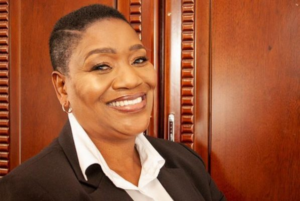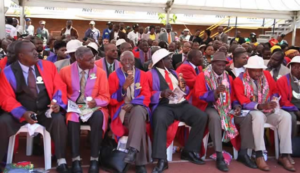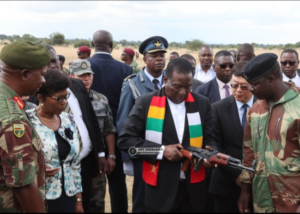THE CONTROVERSY OF LABELING JOURNALISM A NATIONAL SECURITY THREAT IN ZIMBABWE
In a notable development that has sparked widespread debate, Dr. Anyway Mutambudzi, Zimbabwe’s Chief Director of Strategic and Presidential Communications, recently categorized the social media posts of renowned journalist Hopewell Chin’ono as a “threat to national security.” This stance, perceived by many as an attempt to muzzle a critical journalistic voice, has intensified the dialogue about the state of media freedom and expression in Zimbabwe.
Globally, when government figures label journalists as national security threats, it invariably places them in danger, potentially exposing them to harassment, arrest, or worse. The critical question arises: Is this characterization of Chin’ono’s social media activities a justifiable concern for national security, or is it a cloaked effort to suppress opposition and critique?
At the core of this issue is Dr. Mutambudzi’s perspective that Chin’ono’s posts aim to foster division between the citizens and the pillars of governance – the ruling party, government, and state. He posits that Chin’ono’s collective social media presence could genuinely threaten national security. Yet, this isn’t an isolated incident in Zimbabwe’s journalism history, prompting questions about the equilibrium between national security and freedom of the press.
Zimbabwe has a complex relationship with press freedom, characterized by a history of intimidation, harassment, and censorship of journalists and media houses. Consequently, accusations of jeopardizing national security against a journalist tend to be met with skepticism and concern. Such claims are often seen as attempts to suppress dissenting voices and consolidate political power.
Hopewell Chin’ono, with his track record of unearthing corruption and human rights abuses, has harnessed social media effectively to share information and opinions. His investigative journalism has led to significant political consequences, including high-profile arrests and resignations. This, however, has also made him a target for those who seek to silence critical voices.
Critics of Dr. Mutambudzi’s stance argue that labeling Chin’ono’s posts as threats to national security is a strategy to erode his credibility and deter his investigative pursuits. They view such allegations as tools to justify repressive actions against journalists who defy the established order.
Supporters of the government’s position maintain that Chin’ono’s posts could potentially disrupt national stability. They emphasize that journalists and media entities have a duty to ensure their reporting does not incite violence or societal divisions. From this perspective, designating certain content as a security threat is a valid protective measure.
The pivotal issue lies in balancing national security interests with the preservation of freedom of expression. In a democratic society, a robust and independent media is crucial for holding power to account and fostering transparency. Nevertheless, this freedom has boundaries, particularly concerning incitement, hate speech, or spreading misinformation that could lead to unrest.
Zimbabwe, like many countries, faces the challenge of navigating this balance. While addressing real concerns about national security is necessary, it is vital to prevent these concerns from being a pretext for stifling dissent and restricting media freedom. Transparent decision-making processes regarding national security threats are key to sustaining public trust.
Furthermore, the government could engage in constructive dialogues with journalists and media organizations, addressing mutual concerns and seeking common ground. Such an approach can cultivate a more transparent and positive relationship between the state and the media.
In summary, the controversy over classifying Hopewell Chin’ono’s social media posts as a threat to national security underscores the enduring battle for press freedom and expression in Zimbabwe. While addressing national stability is essential, it is crucial to ensure that measures taken do not impinge upon the fundamental right to a free press. Striking a balance between protecting national security and maintaining media freedom is a challenge that Zimbabwe, and many other nations, continue to face.



